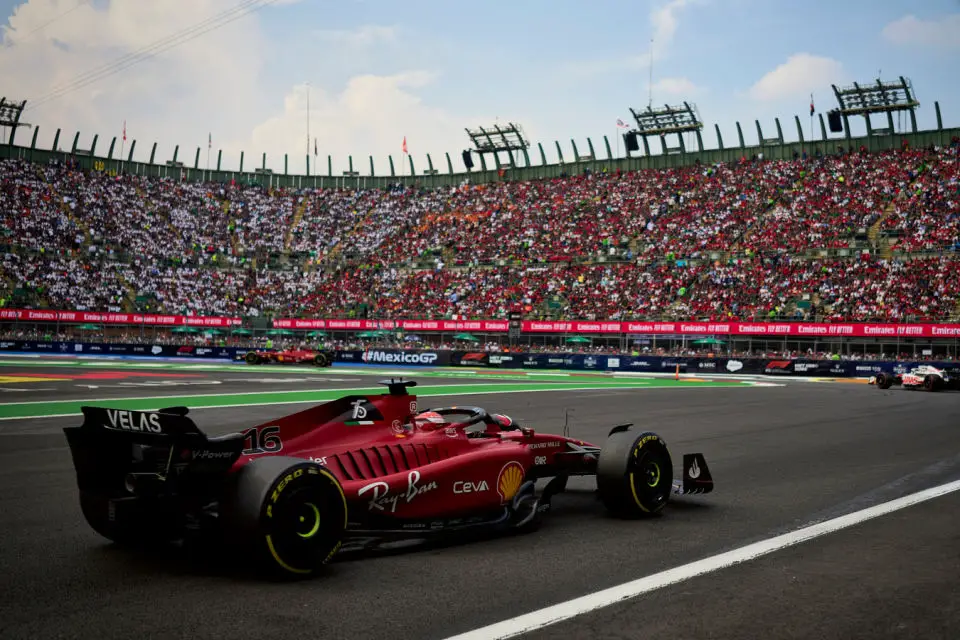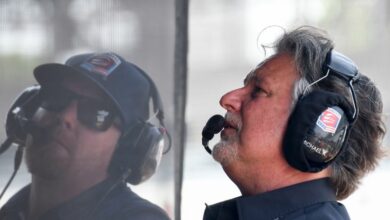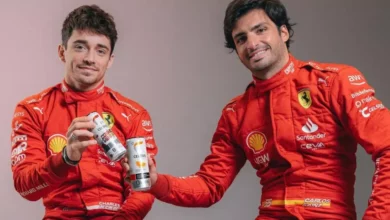F1 Teams Unite in Call for Parc Ferme Rule Revision Amidst Evolving Racing Dynamics
Formula 1 teams, led by Ferrari and Aston Martin, are advocating for a modernization of the parc ferme rules, recognizing the challenges posed by the current regulations. Recent racing incidents have amplified the urgency for reassessment, calling for updates that align with the sport’s evolution.
Key Takeaways:
- F1 teams, notably Ferrari and Aston Martin, are pushing for changes to parc ferme rules, highlighting the sport’s evolution beyond the original intent of these regulations, which was to prevent the creation of ‘one-off’ cars for qualifying and races.
- Incidents involving teams like Mercedes and Ferrari have brought to light the difficulties faced under the current parc ferme system, particularly with the introduction of the Sprint format that limits practice sessions for car adjustments.
- Key figures like Ferrari’s Diego Ioverno and Aston Martin’s Tom McCullough acknowledge the historical importance of parc ferme but advocate for rule revisions, considering the existing budget cap and parts tracing as adequate controls.

Formula 1 has been synonymous with cutting-edge innovation and meticulous strategic planning. The parc ferme rules, initially implemented to stop teams from creating different car setups for qualifying and races, are now being questioned as the sport continues to advance. The call for change is driven by a consensus among teams that the rules need to be updated to reflect the current state of the sport.
The core of this discussion revolves around the restrictions parc ferme places on teams’ ability to adapt their cars to the variable conditions of race weekends. The newer Sprint format has further limited the time available for adjustments, resulting in notable penalties for teams like Mercedes and Ferrari due to setup errors.
Ferrari’s sporting director, Diego Ioverno, recently spoke out about the issue, emphasizing the significant impact of the current parc ferme rules. He reflected on the challenges faced at the Austin race, stressing the need for a balance between safety and performance. Ioverno believes that while some aspects of parc ferme are still valid, a relaxation of certain rules could be beneficial, given the current budget cap and parts tracing mechanisms.
Tom McCullough of Aston Martin shared similar views, appreciating the initial advantages of parc ferme but also highlighting its limitations. He pointed out that some changes are permissible under current rules, like altering brake materials, but others, like modifying the skids and plank of the car, are not. McCullough emphasized the difficulty of making decisions based on limited data, especially considering variables like weather conditions. He supports tweaking the regulations but maintains that completely eliminating parc ferme might not be necessary.
This unified call for change reflects a broader trend in Formula 1, where adaptation and evolution are key to maintaining the sport’s integrity and excitement. As teams continue to navigate the complex landscape of modern racing, the discussion around parc ferme rules is poised to play a pivotal role in shaping the future of Formula 1.


